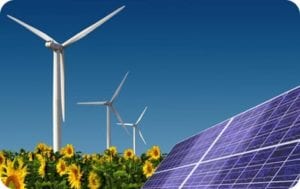An $870 million (R9.3 billion) financial agreement has been signed for the Lake Turkana Wind Power Project (LTWP).
“The signing of the over US $870m financing agreements represents a major breakthrough to actualizing the biggest clean power energy project in Africa, spanning years of negotiations and fundraising,” says Tshepo Mahloele, CEO of Harith General Partners. Harith has committed $70 million for wind energy in Kenya and $500million across the African power sector through a new fund. The parties at the signing ceremony were represented by lead developer and independent power producer Aldwych, which is majority owned by the Pan African Infrastructure Development Fund (PAIDF). The project is meant to add an existing 300MW of reliable, low cost wind energy to the national grid of Kenya. The project will be financed with a mixture of equity, mezzanine debt and senior debt.LTWP has signed a 20 year Power Purchase Agreement with the government of Kenya through its electricity entity, Kenya Power. LTWP will assist in diversify Kenya’s energy mix and reduce the country’s reliance on power production from oil and diesel power generators. The Kenya government will save millions per year on importing fuel.
LTWP is primarily responsible for the financing, construction and operation of the wind farm. According to Mahloele, the combination of international financial and technical expertise has ensured that the project is structured in a bankable and sustainable form in accordance with international standards. Involved in the project is a group of investors and lenders with extensive financial and technical capabilities and experience on the African continent, including FMO, Vestas, Finnfund, IFU and a strong local sponsor KP&P on the equity side. The syndicate of banks is led by the African Development Bank and comprises Standard Bank, Nedbank, EIB, DEG and Proparco. “It is our assertion that the Lake Turkana Wind Project will greatly reduce Kenya’s over reliance on hydropower which is playing a critical role in ensuring security of electricity supply but is however vulnerable to periodic draught seasons,” says Mahloele.






